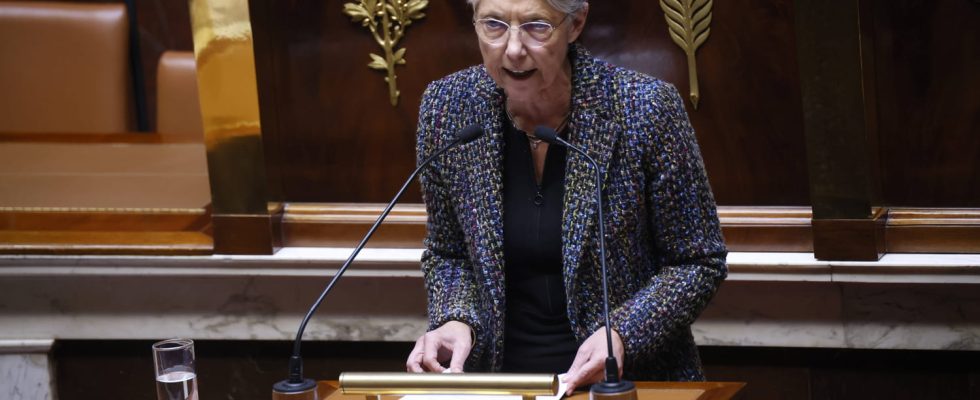Could a motion of censure leading to the resignation of Elisabeth Borne be voted on Monday? Alliances are tied but the outcome seems compromised. Details in figures.
Will France find itself in a period of political instability from Monday March 20, 2023? That day, several motions of censure should be studied in the National Assembly. After the announcement by Elisabeth Borne to engage article 49.3 of the Constitution to pass, without a vote, the pension reform, it is planned that parliamentarians can use this recourse which, if it were to be adopted, would entail the fall of the government and the departure of the Prime Minister. But to succeed, the motion of censure requires an alliance of all opposition to the executive. It is indeed necessary to obtain an absolute majority within the hemicycle for the motion to be adopted. This corresponds to 287 votes, the lower house of Parliament being currently composed of 573 deputies. Is it imaginable to see Elisabeth Borne and her ministers being overthrown on Monday? We do the accounts.
About twenty missing deputies
Multiple motions of censure may be tabled within 24 hours of the engagement of 49.3. The deputies therefore have until 3:20 p.m. this Friday to do so. However, for it to be admissible, the motion of censure must collect the signatures of at least 1/10e of the votes of the Assembly, that is 58 deputies. The Liberties, Independents, Overseas and Territories (LIOT) group, as well as the National Rally (RN) group, should file one each. But LIOT, this center-left group, does not have enough deputies in its ranks (20). Thus, an alliance to co-sign the motion of censure with the group La France insoumise was established, so that it would be admissible. LFI has 74 elected members. The RN and its 88 members will be able to file it individually.
Does one of the two motions of censure have a chance of succeeding? Let’s immediately dismiss the hypothesis that the one presented by the RN succeeds. The entire Nupes (LFI, EELV, PS, PCF) has a red line: never sign a text from the far right, whatever it is. On the other hand, that of LIOT could achieve more consensus. The elected representatives of this group will sign it, but not all of them: at least three could oppose it (the 3 who had opposed the motion of rejection voted at the start of the examination of the bill on the reform of pensions ). On the other hand, the whole of the Nupes, as well as the RN which will support all the motions. Among the 5 non-attached deputies, at least 2 should support it. The accumulation of these various signatures does not make it possible to reach the required minimum.
The key therefore lies, as for the (no) vote on the pension reform, in the hands of the group Les Républicains. Eric Ciotti, LR president, announced that his group of 60 elected officials would not sign the motions. A waste of time then? Not so fast. Some LR deputies are dissidents and will initial the text. How much remains to be seen. Two have already publicly announced that they will sign the motion (Fabien Di Fillipo and Pierre Cordier) and BFM-TV advance a total of seven at LR, as Politico holds the number 10. In the best case, 266 deputies could vote LIOT’s motion of censure. It would therefore miss, in the state, 21 votes. Can they be found by Monday? This will be the challenge of the weekend.
